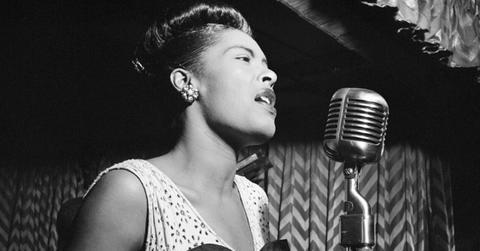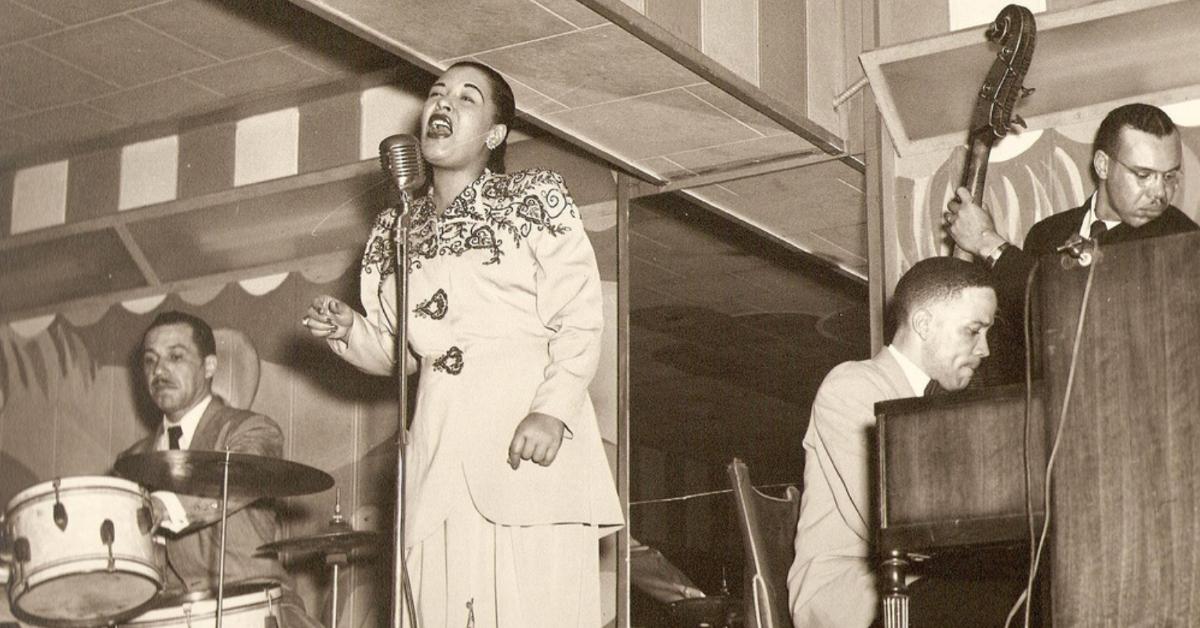The Term "Strange Fruit" Was Made Famous by a Billie Holiday Song — It Has a Deep Meaning
"This was exactly what I wanted the song to do and why I wrote it."
Published Nov. 18 2024, 10:53 a.m. ET

Billie Holiday's voice remains one of the most unique talents the world of music has ever experienced. As a jazz singer, her improvisational skills were unmatched. She was also a distinctly soulful performer who often used her songs to convey powerful and uncomfortable messages. This is particularly true for the song "Strange Fruit," which she first performed in 1938.
According to PBS, Billie would always sing this song without an encore, which was followed by the lights going out. Patrons would often walk out the moment she started singing it. Despite those kinds of reactions, it went on to sell one million records and was later named “Song of the Century,” by Time in 1999. What does the phrase strange fruit actually mean? It holds deep historical significance.

What does strange fruit mean?
The song "Strange Fruit" started out as a poem written by Abel Meeropol, a Jewish teacher from the Bronx who put pen to paper after being deeply affected by a 1930 photograph of a lynching, per the Library of Congress. Seven years after that picture was taken, Abel wrote "Bitter Fruit," which was published in The New York Teacher, a teacher's union publication, as well as a Marxist magazine called 29. He used a pen name in the latter.
After Abel put the poem to music, he sent it to the owner of Café Society, an integrated music venue in Greenwich Village. He passed it along to Billie, whose version is widely regarded as one of the most powerful protest anthems ever written. The first few lines are as follows: "Southern trees bear a strange fruit. / Blood on the leaves and blood at the root. / Black bodies swingin’ in the Southern breeze. / Strange fruit hangin’ from the poplar trees."
Abel was at Café Society the night Billie first sang "Strange Fruit" and described that moment with wonder. "She gave a startling, most dramatic, and effective interpretation which could jolt an audience out of its complacency anywhere," he said. "This was exactly what I wanted the song to do and why I wrote it," via The Guardian.
A debilitating addiction to heroin threatened to take Billie's career and life away from her and also earned her a year in prison in 1947. Upon her release, she performed at Carnegie Hall in New York where she once again closed the show with "Strange Fruit." This performance was made more haunting by the fact that prior to going on stage, Billie had accidentally pricked her scalp with a hat pin. In "Lady Sings the Blues," she wrote that "between the sweat and blood, I was a mess."
It would later be described as an anti-lynching song and has been covered by numerous artists to critical acclaim and disdain. For Billie, it was also a personal about the fragility of Black bodies in America. When she sang "Strange Fruit," Billie was reminded of her father's death. In her autobiography, Billie wrote that Clarence Holiday was refused treatment for a lung disease that ultimately killed him. Performing a song about a racially motivated crime was a bitter reminder of her own loss.